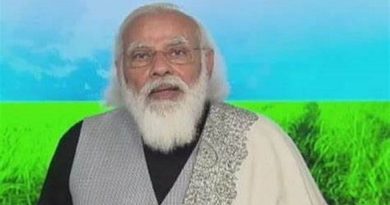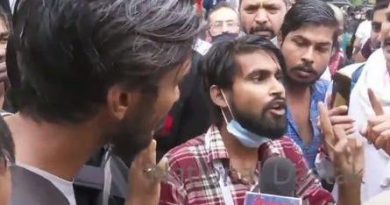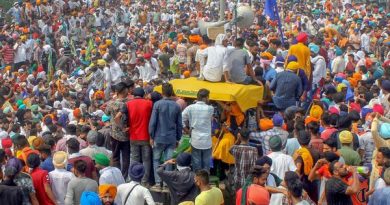| |
|---|
News Desk: It’s been over a month since farmers arrived at the border of India’s national capital, New Delhi, to protest the country’s three new contentious farm laws. What started out as peaceful protests centered around one city have now expanded to other cities with pockets of violence emerging in places.

The critical sixth round of talks scheduled to take place on December 29 has now been postponed to December 30 at the government’s request. The delay comes even as the agitation among protesting farmers is on the rise, and they refuse to give into the government’s narrative. Even Prime Minister Narendra Modi’s attempts to assuage them thus far have failed.
The farmers claim that the laws are biased to play into the hands of big corporates, who only care about the bottom line in the long run. The government, on the other hand, believes that the new laws will fetch the farmers better prices and more options to sell their produce.
The lack of trust between the two sides seems to be widening. It has even captured the attention of international governments — some of whom have questioned India’s government’s handling of the situation.
Farmers’ protests in India turn violent in agitation against Reliance Jio
Farmers in India have called for a boycott of products by companies owned by billionaires Gautam Adani and Mukesh Ambani.
Since last week, farmers have reportedly been damaging telecom towers in Punjab to protest the monopolistic practices of Reliance Jio, owned by Ambani. According to the protestors, India’s new arm laws play in favour of the giant corporates and will cause farmers more harm than good in the long run.
According to the government, over 1,500 telecom towers have been ‘impacted’ by farmers in Punjab. But, only 23 towers have sustained actual damage. Nonetheless, Punjab Chief Minister Amarinder Singh issued a warning, directing the police to take strict action against anyone seen participating in vandalism or the disruption of telecom services.
It seems to have done little to dissuade some parties. In Punjab’s Moga, farmers were reportedly spotted damaging telecom towers on December 29, even after Singh’s warning. This is the same region where Adani had already set up silo for crops, well before the new laws came into being.
Before the march to Delhi, one of the protests to get the government’s attention was outside the same warehouse.
The farmers have one main demand — repeal the laws
Some farmer’s unions have localised issues that they want addressed. However, the primary cause of impasse between the Indian government and the farmers is that the latter is firm on its main demand — repeal the three new laws.
Their other demands include, but are not limited to:
- A written assurance that the Minimum Support Price (MSP) scheme will continue in the future
- The central government should drop amendments to the Electricity Ordinance 2020
- Reduce and amend the penalties for stubble burning
- Release farmers arrested on charges of stubble burning in Punjab
- No impact on land ownership of farmers
Farmers protests spread beyond the national capital — and beyond India
Small scale protests started in Punjab as early as August when the new farmer laws were made public. It was only two months later that the unions issued the call for the ‘Delhi Chalo’ (Let’s go to Delhi) march.
After the first few rounds of talks between the government and union leaders, the centre issued a new proposal agreeing to all of the farmers’ demands but one — repealing the new farm laws entirely.
The farmers shot down the government’s proposal and called for a nationwide Bharat Bandh on December 8.
Thereafter — even though most widespread protests continue to be centred around Punjab, Haryana, and Western Uttar Pradesh — demonstrations were also reported in Uttar Pradesh, Karnataka, Tamil Nadu, Odisha, Kerala and other states.
A group of farmers from 21 districts in Maharashtra started on a ‘vehicle march’ from Nashik and have joined the protestors along Delhi’s borders.
Several Indian-American protests were also held outside Indian consulates in San Francisco, Chicago, Indianapolis, New York, Houston, Michigan, Atlanta and Washington D.C. Even in New Zealand, 1,500 protesters gathered around Auckland’s Aotea Square to raise their voice against the new laws.
Labour party members in the UK have also expressed their support and raised concerns as to how the Indian government is handling the crisis.




